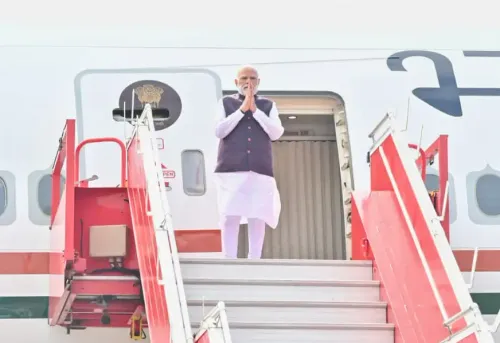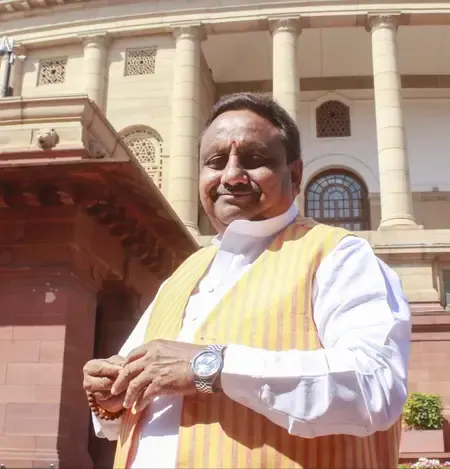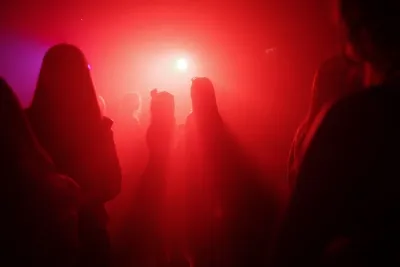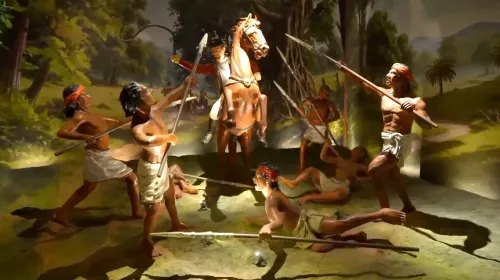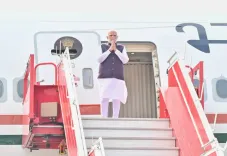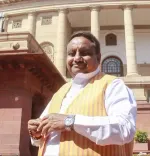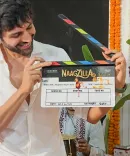Why Has PM Modi Declared an End to 75 Years of Tolerance for Proxy Wars?
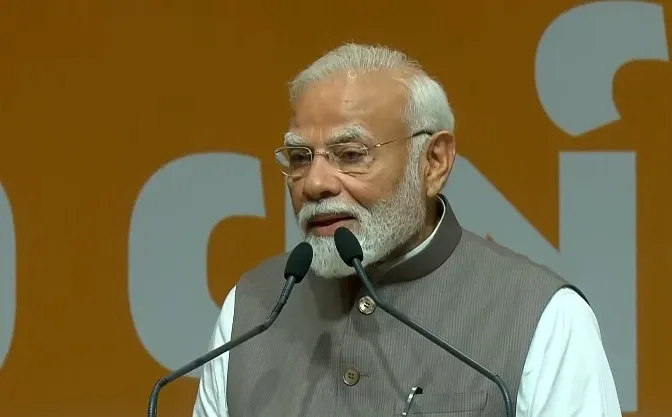
Synopsis
Key Takeaways
- PM Modi emphasizes an end to tolerance towards proxy wars.
- Significant development projects worth Rs 5,536 crore inaugurated.
- Launch of Urban Development Year 2025 for further urban transformation.
- New healthcare initiatives to enhance capacity in Gujarat.
- Commitment to peace while standing firm against terrorism.
Gandhinagar, May 27 (NationPress) On the second day of his visit to Gujarat, Prime Minister Narendra Modi continued to criticize Pakistan for its backing of terrorism, asserting that for 75 years India has endured proxy wars but will no longer do so. PM Modi made this statement on Tuesday during the celebrations marking two decades of Gujarat's Urban Growth Story at Mahatma Mandir in Gandhinagar, highlighting two decades of organized and sustainable urban development in the state.
During the event, PM Modi inaugurated and laid the groundwork for development projects valued at Rs 5,536 crore. These projects encompass housing, health, urban planning, and infrastructure efforts designed to enhance the state’s readiness for the future.
Reflecting on his initiation of the Urban Development Year 2005 as the former Chief Minister of Gujarat, PM Modi officially declared the Urban Development Year 2025, marking a new chapter in urban transformation. The initiative aims to bolster urban infrastructure, sustainable living, and civic amenities throughout Gujarat.
Starting his speech with the slogan "Bharat Mata Ki Jai," the Prime Minister shared his experiences during his recent tour across Gujarat: "Yesterday I was in Vadodara, Dahod, Bhuj, Ahmedabad, and today in Gandhinagar. I felt a wave of patriotism everywhere -- every hand held a Tricolour and every heart resonated with nationalism. It was an unforgettable vision, not just in Gujarat but throughout the nation."
In a crucial and emotionally charged segment of his address, PM Modi confronted the enduring issue of terrorism originating from Pakistan.
"In 1947, when Maa Bharati was divided, we should have liberated ourselves from colonial chains, but instead, our nation was partitioned into three parts. That very night marked the onset of the first terror attack in Kashmir. A segment of our country -- PoK -- was seized under the guise of terrorism. Sardar Patel advocated for the army to continue until PoK was reclaimed, but his counsel went unheeded," he stated.
PM Modi strongly denounced decades of tolerance towards terrorism, stating: "For 75 years, we tolerated proxy wars. Tourists, pilgrims, civilians -- they attacked whenever they found an opportunity. Should we continue to endure this? 'Goli ka jawab gole se dena chahiye' (Should we respond to bullets with bombs)?"
Reiterating India's dedication to peace, the Prime Minister stated, "We adhere to Vasudhaiva Kutumbakam -- the world is our family. We desire peace for our neighbors as well. But when provoked repeatedly, India must remind the world that this (India) is also a land of warriors."
Among the significant announcements was the virtual foundation-laying of an 1,800-bed hospital in Ahmedabad’s Civil Medical campus, funded at a cost of Rs 588 crore, substantially improving healthcare capacity in the region.
Additionally, health infrastructure worth Rs 672 crore was inaugurated, featuring a satellite center of the U.N. Mehta Institute of Cardiology and Research Centre in Gandhinagar.
The Rs 84 crore facility, located within the Gandhinagar Civil Hospital campus, will provide advanced cardiac and neurocare services to patients from North Gujarat and adjacent areas.
The event in Gandhinagar reinforced PM Modi's long-term vision of inclusive, modern, and resilient urban development -- merging infrastructure, health, and heritage while addressing the evolving challenges facing the nation.

